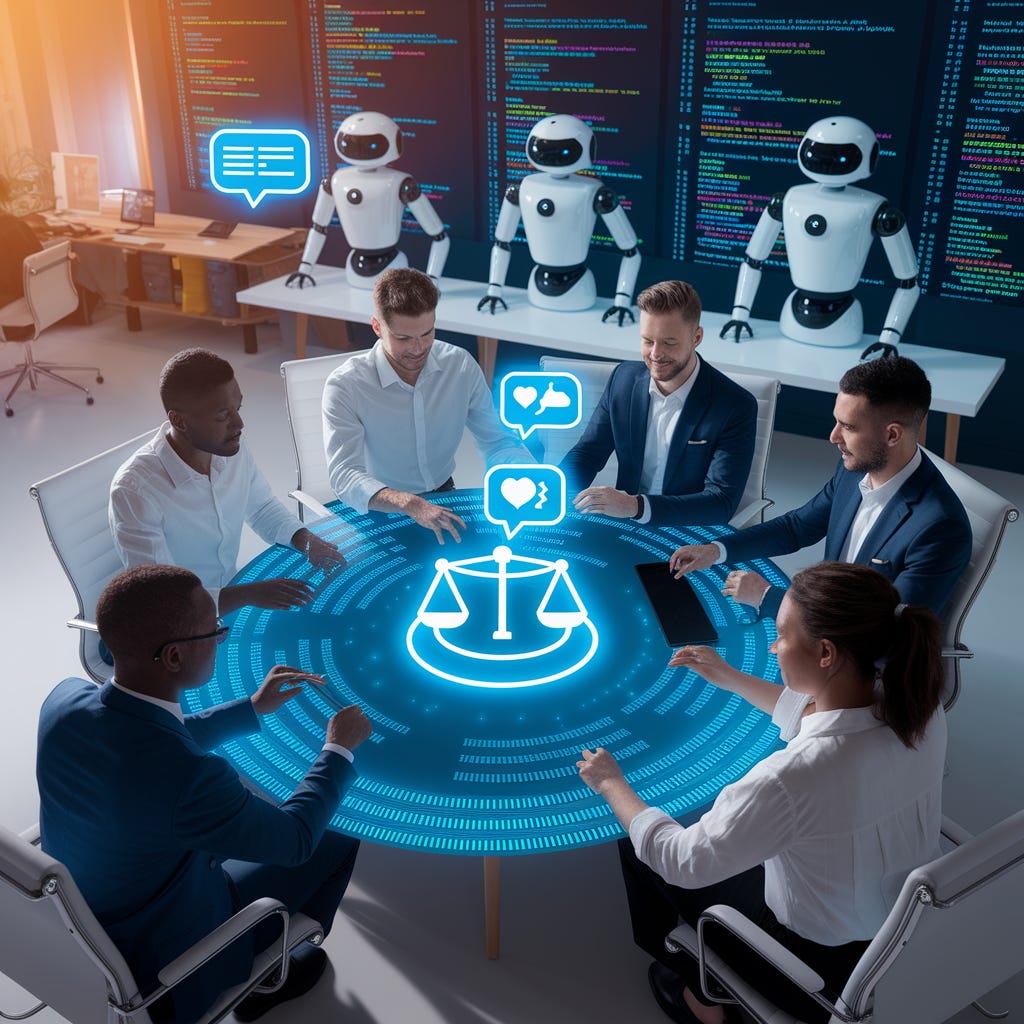From Code to Collaboration: Why ‘Soft Skills’ Are the Hardest Currency in Tech
How Empathy and Storytelling Are Redefining Developer Success
The Death of the Lone Wolf Coder
Twenty years ago, the archetype of a software engineer was the lone coder: headphones on, lost in code, measured almost exclusively by technical prowess. Fast forward to 2025, and that image is not just outdated—it’s counterproductive. As AI automates more of the repetitive, technical heavy-lifting, what truly distinguishes high-impact developers is their mastery of “soft” skills: empathy, communication, adaptability, ethical reasoning, and the ability to collaborate across disciplines.
The shift isn’t subtle. According to the LinkedIn Global Talent Trends 2024, 92% of talent professionals say soft skills are just as important—if not more so—than hard skills in hiring. In the world of technology, this transformation means the most valuable engineers are those who can code and connect, build and bridge.
The New Soft Skills Stack for Developers
Empathy Engineering
Empathy is no longer optional. It’s the ability to deeply understand user needs, pain points, and perspectives—and to design with them in mind. Companies like Microsoft and Atlassian now require engineers to participate in user journey mapping and accessibility workshops as part of onboarding.
Practical Example:
At a global fintech, engineers collaborated with customer support to field real complaints. This “walk in the user’s shoes” exercise led to a redesign of the mobile app, reducing negative reviews by 40% within six months.
Storytelling with Data
Technical solutions are only as good as the buy-in they receive. Developers who can translate complex code outcomes into clear, persuasive narratives drive better decisions and get projects funded.
Tip:
Instead of “latency dropped by 150ms,” try “users recovered over 10,000 hours of waiting time last quarter.”
Resilience and Adaptability
Tech is turbulent. AI, cloud, and security paradigms shift quarterly. In their 2025 State of Software Engineering report, GitHub found that teams who practiced regular retrospectives and rapid upskilling delivered 35% more features per year, even amid volatile tech changes.
Influence Without Authority
Modern development is cross-functional: product, design, legal, marketing. Developers who learn to advocate for best practices—security, ethics, privacy—without formal managerial power become the linchpins of successful launches.
The Business Impact of Human-Centric Developers
Case Study: Shopify’s Empathy Mapping Workshops
Shopify found that integrating empathy mapping into sprint planning led to a 15% lift in checkout conversion, and a 25% faster resolution of customer-reported bugs. By focusing on “how will this make users feel?” rather than just “does it work?”, the company turned customer feedback into actionable design.
Collaboration Drives Retention
According to Gartner’s 2025 Talent Report, teams with strong communication and collaboration practices report 34% higher retention and 41% faster project delivery.
Diversity, Equity, and Inclusion (DEI)
Empathetic, communicative tech teams foster inclusion. A 2024 Stack Overflow Survey found that diverse teams with well-developed soft skills produced codebases with 20% fewer critical bugs, and higher user satisfaction scores.
How to Level Up Your Soft Skills
1. Join Cross-Disciplinary Hackathons
Hackathons that mix tech, marketing, and design challenge engineers to explain, persuade, and brainstorm outside their comfort zone.
2. Practice Technical Storytelling
Host “lunch and learn” sessions where you translate a technical win into a business impact story.
3. Shadow Customer-Facing Teams
Spend time with support or sales. Seeing how users interact with your product—and where they stumble—builds empathy, sparks new ideas, and helps prioritize real-world fixes.
4. Build Feedback Loops
Use tools like Miro for empathy mapping, or Grammarly for refining documentation. After every major deliverable, seek feedback not just on your code, but on your communication and collaboration.
The Future of Work—Why Soft Skills Are AI-Proof
As AI continues to automate coding, testing, and even some design, the “human” skills—listening, persuading, negotiating, empathizing—are what truly differentiate top talent. These skills are not just AI-proof; they’re AI-multiplied, empowering teams to use technology more thoughtfully and effectively.
Real-World Example
A major European SaaS firm recently reported that engineers with strong soft skills were twice as likely to be promoted to leadership roles, and 1.7x more likely to be asked to lead cross-functional initiatives.
The future of tech belongs to those who can bridge the gap between code and people. Invest in empathy, communication, and collaboration—not just as resume boosters, but as the foundation of your career.
Action Plan: Level Up in 90 Days
Week 1-4: Take a UX design course (e.g., Coursera’s User-Centered Design).
Week 5-8: Lead a cross-departmental brown-bag session.
Week 9-12: Shadow a customer support team for 4 hours.
Pro Tip: Track progress with a “Soft Skills Scorecard”


